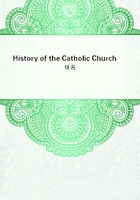
第297章
The men into whose hands the property and patronage of the Church had passed took no steps to look after the repair of the church buildings or to provide clergy to preach the new religion. In some cases their neglect was due to the fact that they themselves were Catholic in their sympathies, and in other cases because they did not want to incur any expenses. As a consequence, the churches were in ruins and roofless, and no religious service of any kind was provided. Few English ministers of good standing in their own country cared to come to Ireland except possibly in the hope of securing a bishopric in the Pale districts, and as a consequence, the men who came were "of some bad note," on account of which they were obliged to leave their own country. Hence, in order to provide ministers to spread the new gospel it was necessary to ordain those who were willing to receive orders as a means of making their living. It is no wonder, therefore, that Edmund Spenser described the Irish Protestant clergy of the period as "bad, licentious, and most disordered." "Whatever disorders," he writes, "you see in the Church of England, you may find in Ireland, and many more, namely, gross simony, greedy covetousness, incontinence, careless sloth, and generally all disordered life in the common clergyman. And, besides all these, they have their particular enormities; for all Irish ministers that now enjoy church livings are in a manner mere laymen, saving that they have taken holy orders, but otherwise they go and live like laymen, follow all kinds of husbandry, and other worldly affairs as other Irishmen do. They neither read the Scriptures, nor preach to the people, nor administer the communion." Agood account of the motley crowd who had been enlisted to carry out the work of reform is given by Andrew Trollope, himself an English lawyer and a Protestant. Although he referred particularly to Munster his account may be taken as substantially correct for the rest of Ireland. "In truth," he wrote, "such they [the clergy] are as deserve not living or to live. For they will not be accounted ministers but priests. They will have no wives. If they would stay there it were well; but they will have harlots . . . And with long experience and some extraordinary trail of those fellows, I cannot find whether the most of them love lewd women, cards, dice, or drink best. And when they must of necessity go to church, they carry with them a book of Latin of the Common Prayer set forth and allowed by her Majesty. But they read little or nothing of it, or can well read it, but they tell the people a tale of Our Lady or St. Patrick, or some other saint, horrible to be spoken or heard, and intolerable to be suffered, and do all they may to allure the people from God and their prince, and their due obedience to them both, and persuade them to the devil and the Pope." The Lord Deputy sent a report to England in 1576 "on the lamentable state of the Church" in Ireland. "There are," he wrote, "within this diocese [Meath] two hundred and twenty-four parish churches, of which number one hundred and five are impropriated to sundry possessions; no parson or vicar resident upon any of them, and a very simple or sorry curate for the most part appointed to serve them; among which number of curates only eighteen were found able to speak English, the rest being Irish ministers, or rather Irish rogues, having very little Latin, and less learning and civility. . . . In many places the very walls of the churches are thrown down; very few chancels covered; windows or doors ruined or spoiled. . . . If this be the state of the church in the best-peopled diocese, and best governed country of this your realm, as in truth it is, easy is it for your Majesty to conjecture in what case the rest is, where little or no reformation either of religion or manners hath yet been planted and continued among them. . . . If I should write unto your Majesty what spoil hath been, and is of the archbishoprics, of which there are four, and of the bishoprics, whereof there are above thirty, partly by the prelates themselves, partly by the potentates, their noisome neighbours, I should make too long a libel of this my letter. But your Majesty may believe it, upon the face of the earth where Christ is professed, there is not a Church in so miserable a case."Spenser drew a sharp contrast between the Catholic clergy and the ministers of the new gospel. "It is great wonder," he wrote, "to see the odds which are between the zeal of the Popish priests and the ministers of the gospel. For they spare not to come out of Spain, from Rome, and from Rheims, by long toil and dangerous travelling hither, where they know peril of death awaiteth them, and no reward or riches are to be found, only to draw the people unto the Church of Rome;whereas some of our idle ministers, having a way for credit and estimation thereby opened unto them, and having the livings of the country offered unto them without pains and without peril, will neither for the same, nor any love of God, nor zeal of religion, nor for all the good they may do by winning souls to God, be drawn forth from their warm nests to look out into God's harvest."[101]